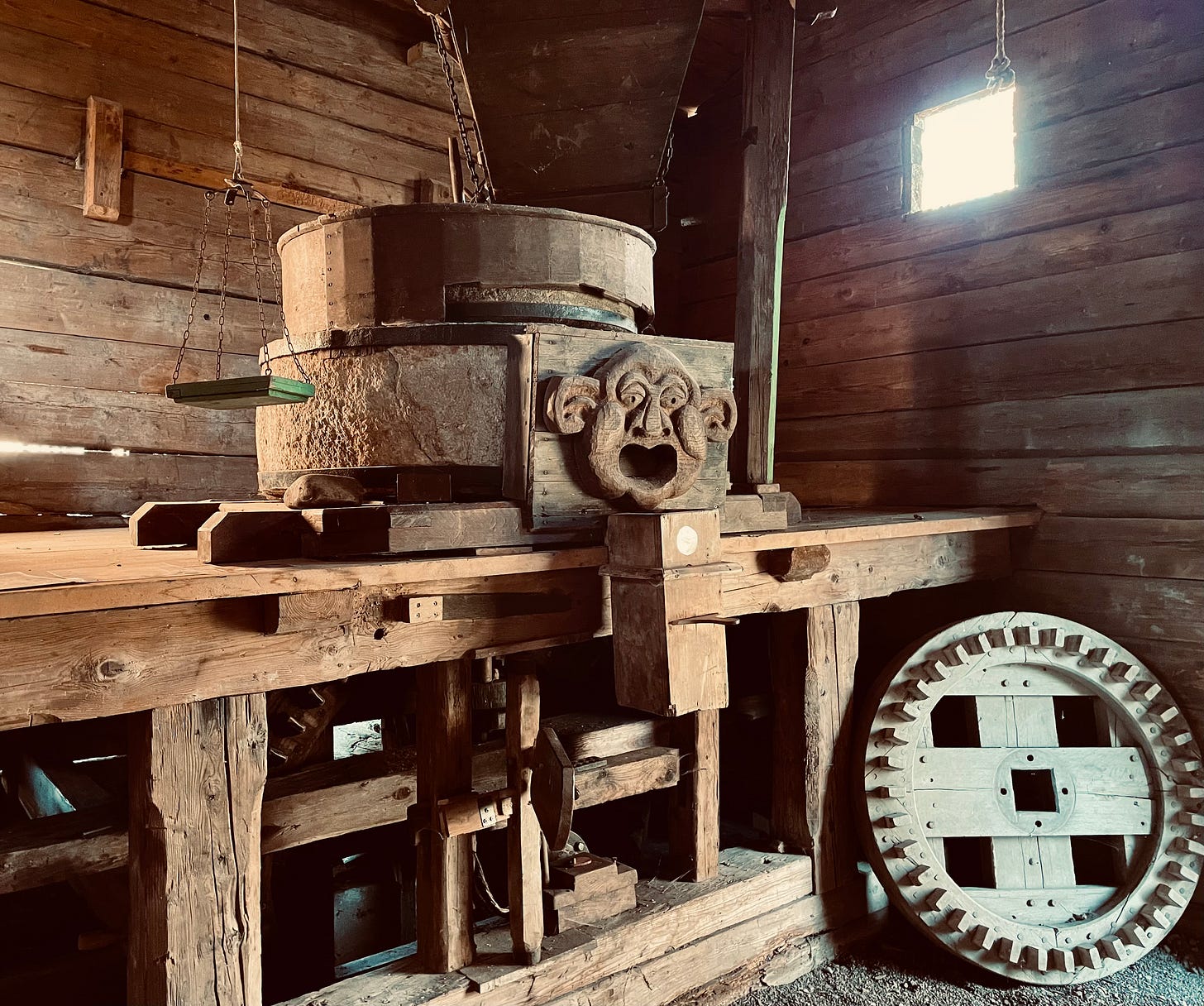
I am not amused
Once upon a time—not so long ago—the world seemed poised for greatness. The Cold War had thawed, walls were crumbling, and democracy marched forward with the confidence of an unstoppable tide. For a fleeting moment, it felt as though humanity had collectively turned a corner, leaving the darker chapters of history behind.
But Märchenland has a way of repeating itself. Here we are now, living in a story where the heroes are fewer, the villains are louder, and the moral of the tale feels as murky as ever.
The Castle on the Hill
Picture a grand castle perched high above the rest of the world. For centuries, its keepers—kings, generals, presidents, and industrialists—ruled with unquestioned authority. Their word was absolute, their privilege divine. Below them, the serfs toiled in the fields, the maidens served in the halls, and the knights stood guard over the gates. It was a perfectly ordered world, provided no one dared question their place in it.
But every so often, the serfs sought a voice. The maidens dared to dream of freedom. Even the knights began to wonder if the castle deserved their unwavering loyalty. And when those moments came, the keepers of the castle would straighten their crowns, tighten their grips, and utter a phrase steeped in icy disdain: “I am not amused.”
This isn’t just a whimsical metaphor. It’s the recurring story of human history.
The Eternal Struggle for Rights
Think about this for a moment: Have you noticed how every major step toward equality is met with a counterpunch of resistance? Each leap forward—whether it’s civil rights, women’s suffrage, or protections for workers—tears a brick from the castle wall. And those at the top scramble to patch it, fearing that their grand fortress might crumble.
Consider the post-war years. After the devastation of World War II, the world began a monumental rebuilding process. Nations sought not only to restore their cities but to reimagine their moral foundations. Women, who had filled factories and kept economies alive during wartime, fought to remain in the workforce. Colonized nations demanded independence. Marginalized communities, from Montgomery to Soweto, rose to challenge the systems that had long held them down.
For a moment in history, progress felt unstoppable, like a rising tide. But nothing strikes fear into the hearts of the powerful like the thought of losing their grip.
The Winds of Backlash
The backlash didn’t arrive in a single storm. It came in waves, subtle at first, like a creeping fog.
By the 1980s, neoliberal policies swept through the West, dismantling the social safety nets painstakingly built after the war. The rich grew richer, the poor were blamed for their struggles, and the walls of the castle were fortified with new economic barriers. By the 2000s, globalization had opened markets but closed minds. Fear of “the other” became a rallying cry, and populist leaders stepped into the void, ready to exploit division for their gain.
And today? Democracy feels fragile, teetering on the edge. Only 27% of the world’s population lives under democratic rule. In some places, the keepers of the castle have turned back the clock entirely, wielding surveillance, propaganda, and brute force to maintain control.
It’s not a new story. It’s just one we’re telling with sharper tools.
The “Abschaum” Dares to Dream
Let’s pause here for a moment. What happens when those the keepers dismiss—the disenfranchised, the marginalized, the so-called “Abschaum”—rise to demand their share of the castle?
The response is predictable. They are labeled dangerous. Uncivilized. A threat to the “natural order.” Their demands—whether for racial justice, gender equality, or climate action—are cast as naïve at best, destructive at worst.
And yet, these demands are the fuel that drives the story forward. Without them, the castle would remain standing on the backs of the serfs, the maidens, the knights. Without them, the tale would stay frozen in feudalism, an endless loop of oppression masquerading as order.
A Märchen for the Modern World
Now let’s shift focus to Märchenland as it stands today. The keepers of the castle have adapted their tactics. They don’t wear crowns or sit on thrones anymore—well, not all of them. Instead, they wield influence through algorithms, media empires, and iron-fisted laws disguised as “stability measures.”
In the United States, one figure looms large—a man who thrives on division, glorifies a mythical past, and yearns for the days when the castle walls were impenetrable. His policies, his rhetoric, and his every move are a backlash against the hard-won progress on human rights of the last century. He is the modern equivalent of a king. Not even enthroned, he is already holding court.
But he is not alone. Across the globe, authoritarian leaders are rewriting the rules, tightening their grips on power, and silencing dissent. China’s surveillance state. Russia’s oligarchic stronghold. Hungary’s slow dismantling of democratic norms. It’s as if the castle keepers have convened a secret council, agreeing that the gates must never again swing open.
The Moral of the Story
So here we are again, wrestling with the same question: Is the arc of history truly bending toward justice, or are we trapped in an endless cycle of progress and backlash?
I don’t have an easy answer. But I know this: Märchenland, for all its beauty and mystique, remains a place where power resists change. Yet, it’s also a place where stories can be rewritten.
Rewriting the Märchen
Let me leave you with this thought: If we are living in a Märchen, what kind of story will it be?
The keepers of the castle are writing one of division and control. But their pen is not the only one. We, too, have the power to craft a narrative—one where the walls come down, the gates open wide, and the heroes are not chosen by birthright but by their courage to imagine a different world.
And who knows? Maybe, one day, even the keepers of the castle will look upon the change they once feared and say, “I am not amused”—but only because they didn’t write it first.
In the end, perhaps the greatest moral of all is this: Stories only have the power we give them.
And it’s time we start telling a new one.
❤️ If you find this piece meaningful, consider clicking the heart at the top or bottom of the post. It helps others discover this newsletter and brightens my day.
Support My Work: Subscribe and Contribute
If you’ve enjoyed my reflections and want to support my work, you can subscribe to The Wild Lionesses Pride* here. Your subscription helps keep this ad-free, reader-supported publication going and ensures my content remains accessible to everyone.
If this reading resonates with you, great! And if not, no worries. Take whatever may be helpful and leave the rest.
If a monthly or annual subscription isn’t feasible for you right now, you can also show your support with a one-time tip via my Tip Jar here.
Thank you for your generosity and for being a part of this journey!
The Wild Lion*esses Pride is a reader-supported publication, free from ads or algorithms.












